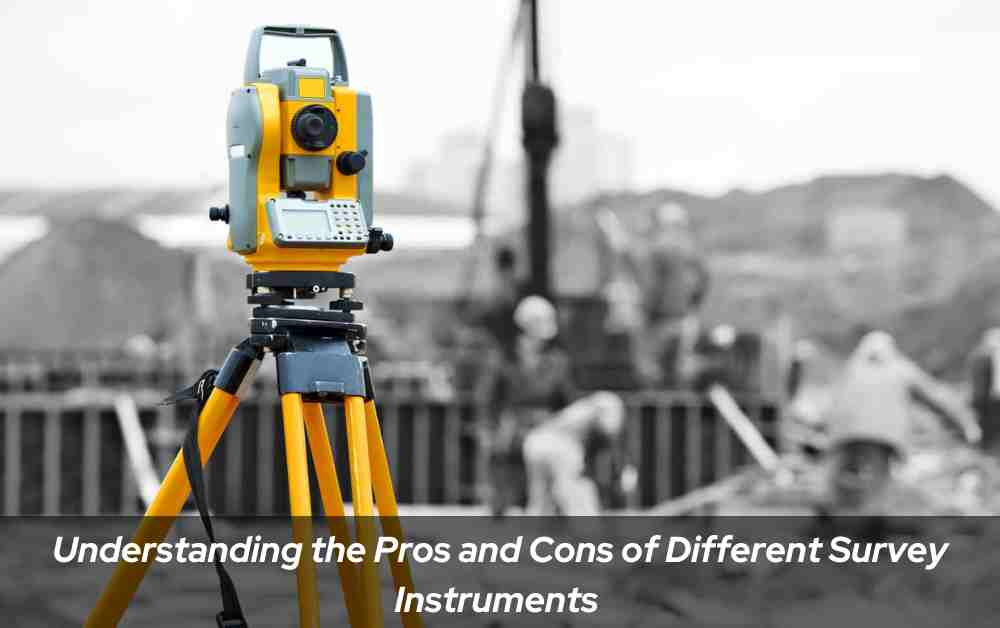I am alexhamilton (alexhamiltons577@gmail.com). I hold full responsibility for this content, which includes text, images, links, and files. The website administrator and team cannot be held accountable for this content. If there is anything you need to discuss, you can reach out to me via alexhamiltons577@gmail.com email.
Disclaimer: The domain owner, admin and website staff of New York City US, had no role in the preparation of this post. New York City US, does not accept liability for any loss or damages caused by the use of any links, images, texts, files, or products, nor do we endorse any content posted in this website.
Introduction
In the realm of research, choosing the right survey instrument is akin to selecting the right tool for a job. Each instrument brings its own set of advantages and drawbacks, influencing the quality and depth of data collected. In this blog post, we’ll embark on a journey to understand the pros and cons of different survey instruments, demystifying the world of research for everyone.
Unraveling the World of Survey Instruments
1. Questionnaires
Pros:
- Cost-Effective: Inexpensive to create and distribute.
- Wide Reach: Can be administered to a large audience simultaneously.
- Anonymity: Respondents may feel more comfortable providing honest answers.
Cons:
- Limited Depth: May miss nuanced responses.
- Response Bias: Written questions may be interpreted differently.
2. Interviews
Pros:
- In-Depth Insights: Allows for a deeper understanding of perspectives.
- Clarification: Real-time clarification of questions.
- Flexibility: Adaptable to the flow of conversation.
Cons:
- Resource-Intensive: Time and resource-consuming.
- Interviewer Bias: The interviewer’s presence may influence responses.
3. Online Surveys
Pros:
- Convenience: Participants can respond from anywhere.
- Automated Data Collection: Responses are automatically recorded.
- Cost-Effective: No printing or postage costs.
Cons:
- Limited Reach: Requires internet access.
- Response Authenticity: Authenticity of responses may be challenging to ensure.
4. Focus Groups
Pros:
- Rich Insights: Participants build on each other’s responses.
- Dynamic Interaction: Real-time exploration of topics.
Cons:
- Limited Generalization: Findings may not be easily generalized.
- Dominant Voices: Strong personalities can influence the group.
5. Observational Surveys
Pros:
- Objective Data: Objective observations free from respondent bias.
- Contextual Understanding: Insights into real-world behaviors.
Cons:
- Limited Insight into Motivations: May not reveal the motivations behind behaviors.
- Resource-Intensive: Requires dedicated time and personnel.
Navigating the Decision-Making Process
1. Define Research Objectives Clearly
- Clearly articulate your research goals to align with the appropriate field survey tools.
2. Consider Your Target Audience
- Tailor your choice based on the demographics and preferences of your audience.
3. Evaluate Budget and Resources
- Be realistic about your budget and allocate resources wisely.
4. Factor in Time Constraints
- Assess your timeline and choose a method that aligns with your schedule.
5. Determine the Nature of Data Needed
- Understand whether you require quantitative or qualitative data for your research.
6. Balance Depth and Breadth
- Weigh the advantages of collecting a large volume of data against the depth of insights.
7. Explore Hybrid Approaches
- Consider combining methods for a more comprehensive understanding.
8. Pilot Test Your Survey
- Conduct a small-scale test before full-scale implementation to refine your survey instrument.
9. Stay Flexible
- Be open to adapting your approach based on ongoing feedback and findings.
Also read – DIFFERENT TYPES OF SURVEY INSTRUMENTS: WHICH ONE SHOULD YOU USE?
Conclusion
Selecting the right survey instrument is a strategic decision that directly impacts the success of your research. By comprehending the pros and cons of various methods, you empower yourself to make informed choices aligned with your objectives. Whether it’s the simplicity of questionnaires, the depth of interviews, the accessibility of online surveys, the dynamics of focus groups, or the objectivity of observational surveys, your selection influences the data you collect. So, navigate the world of survey instruments with confidence, armed with the knowledge to choose the method that best suits your research goals.
Note: Also read our next blog: The Ultimate Guide to Car Servicing in Dubai: Everything You Need to Know



